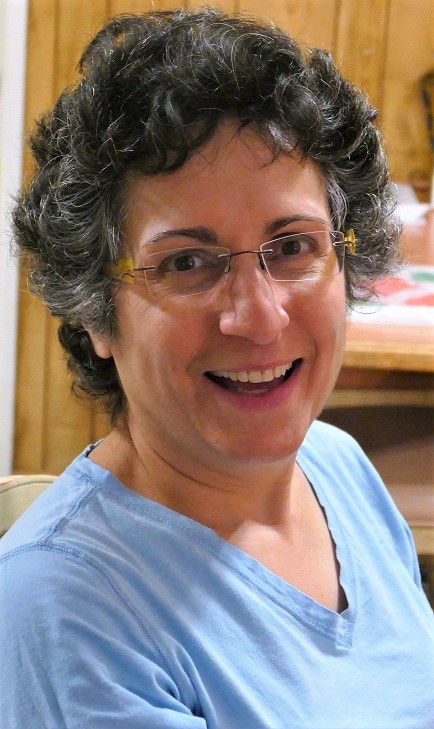I was browsing for a new pair of hiking socks, at the back of a discount sporting goods store when an older man and woman settled nearby. I looked up when I heard the woman exclaim her discovery with glee. Before her was a table stacked with boxes of athletic shoes. “Now, we must look for shoes for you,” she said giddily. She bent down and picked up a white pair from under the table. “Will they fit?” she asked as she held them up for him to see. “I don’t even know [chuckle] your size. How are these?” The man spoke softly. I sensed he wanted to get this task accomplished quickly.
 Not finding what I was looking for, I walked to the front of the store when I spotted a selection of thick wool-blend acrylic socks by the cash register.
Not finding what I was looking for, I walked to the front of the store when I spotted a selection of thick wool-blend acrylic socks by the cash register.
The couple arrived with his new shoes and other items. She continued talking as the cashier totaled their items. While the man paid with a credit card, she eagerly reached across the counter with both arms. The youthful cashier smiled and handed her the man’s shoes and gave him the bag filled with their other purchases. They hastily departed. I followed, after buying two pair of socks.
Caregivers often notice unusual interactions. My work with families and professionals caring for people with dementia has gifted me with awareness and compassion. Others may be quick to judge, but I’ll approach with comforting words. If the family responds, I’ll curiously inquire further. The reasons vary. The most traumatic was a young adult who suffered brain injury as a baby after falling into a ditch. I’ve met families with severely autistic loved ones and people with dementia.
Anosognosia
Walking across the parking lot to my car, I regretted not engaging this couple. Passing a diner, I imagined had I interacted with them, we’d be sitting at a table over coffee. The man would breathe a sigh of relief that someone understood, while the woman enjoyed another conversation companion.
Assuming the woman has some kind of cognitive impairment or even Alzheimer’s, how does the man feel being with her in public? Could it be that her vocalizations help her to connect with and make sense of the world?
Taking this one step further, how does one deal with an impaired loved one who is unaware? Might the gleeful woman suffer from anosognosia and not realize there’s anything wrong?
A caveat is important, here. At first, I assumed they were husband and wife. But I don’t remember looking at their fingers for the tell-tale wedding rings. Unless we ask, how can we know for sure? For all I know, they are brother and sister, friends or neighbors. It’s important for us to remember the limits of our observations. In this case, they are an older man and woman.
Finding Caregiver Respite
What are this man’s options if indeed the woman is unaware there’s anything wrong? If he’s caring for her, he’ll need periods of respite; otherwise, his health will suffer.
What are his respite care options?
If they’re a couple and have children, one of them might agree to sit with Mom or take her on an outing, to give Dad a break. A neighbor, community or church member who’s aware of the situation could step in for a few hours. An in-home care professional would provide him peace of mind knowing she has qualified companionship for a few hours. Any of these options will give him a change-of-pace opportunity to regain his strength.
How can he orchestrate respite care if she doesn’t know there’s anything wrong?
If she suffers from anosognosia, she’ll wonder why he wants to go somewhere without her. “Why can’t we go together?” His answer may cause her to act out even more.
Therapeutic Lying
Professionals recommend lying. At least, this is how caregivers interpret what they hear. Understandably, we feel uncomfortable lying.
The real recommendation is therapeutic lying, where the answer focuses on the individual’s comfort, safety and dignity.
For example, if the man needed to get away and a neighbor offered to help, the man may explain that the neighbor needs a woman’s ear to discuss a private matter. This gives the woman a sense of purpose in helping her neighbor, while the man slips out for a few hours.
Give the gift of caregiver support with a free subscription to The Caregiver’s Voice Monthly newsletter









Pause for thought – ‘Therapeutic lying’ where the answer focuses on the individual’s comfort, safety and dignity… has merit in a very best caring world — Insightful and helpful.
Thanks
Anosognosia — feel that’s often a man’s reality – little self awareness — Not a clue anything is wrong — OH my — I guess TACT is what wives and friends use to stop the self-blindness.
Caregiver Respite — needs to come into the NORM consciuosness of a community as the need is huge. Locally the Men’s Shed movement has helped markedly. For women it is VERY hard as men rule in most relationships. CWA DFC coffee clubs are doing well locally
Val, receiving your comments re: these approaches is all the more sweet since you also walk the road of life with dementia.
I get your humor re: anosognosia as I was raised in the same generation.
What remains hopeful is times are changing and there are plenty of men who are even more aware than women… IF we are to divide by gender stereotypes.
Your heart remains strong and in the right place.
Thank you.